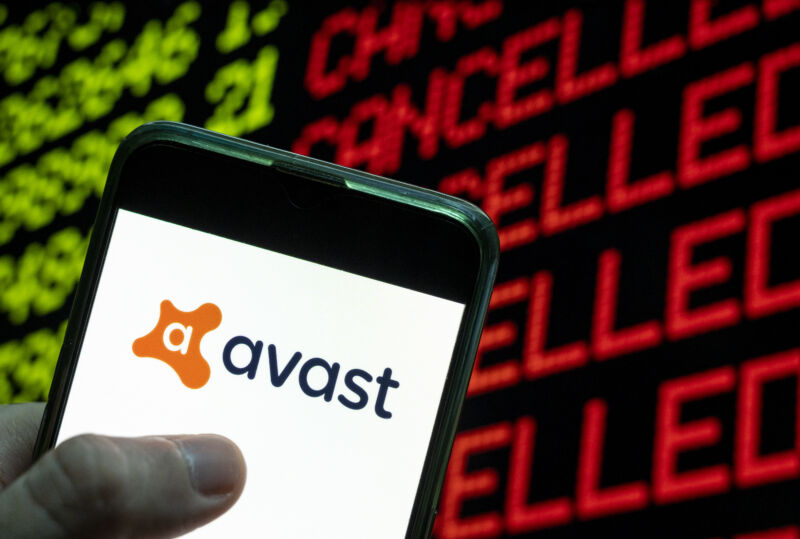Avast Ordered To Stop Selling Browsing Data From Its Browsing Privacy Apps

Avast, a name known for its security research and antivirus apps, has long offered Chrome extensions, mobile apps, and other tools aimed at increasing privacy.
Avast’s apps would “block annoying tracking cookies that collect data on your browsing activities,” and prevent web services from “tracking your online activity.” Deep in its privacy policy, Avast said information that it collected would be “anonymous and aggregate.” In its fiercest rhetoric, Avast’s desktop software claimed it would stop “hackers making money off your searches.”
All of that language was offered up while Avast was collecting users’ browser information from 2014 to 2020, then selling it to more than 100 other companies through a since-shuttered entity known as Jumpshot, according to the Federal Trade Commission. Under a proposed recent FTC order (PDF), Avast must pay $16.5 million, which is “expected to be used to provide redress to consumers,” according to the FTC. Avast will also be prohibited from selling future browsing data, must obtain express consent on future data gathering, notify customers about prior data sales, and implement a “comprehensive privacy program” to address prior conduct.
Reached for comment, Avast provided a statement that noted the company’s closure of Jumpshot in early 2020. “We are committed to our mission of protecting and empowering people’s digital lives. While we disagree with the FTC’s allegations and characterization of the facts, we are pleased to resolve this matter and look forward to continuing to serve our millions of customers around the world,” the statement reads.
Data was far from anonymous
The FTC’s complaint (PDF) notes that after Avast acquired then-antivirus competitor Jumpshot in early 2014, it rebranded the company as an analytics seller. Jumpshot advertised that it offered “unique insights” into the habits of “[m]ore than 100 million online consumers worldwide.” That included the ability to “[s]ee where your audience is going before and after they visit your site or your competitors’ sites, and even track those who visit a specific URL.”
While Avast and Jumpshot claimed that the data had identifying information removed, the FTC argues this was “not sufficient.” Jumpshot offerings included a unique device identifier for each browser, included in data like an “All Clicks Feed,” “Search Plus Click Feed,” “Transaction Feed,” and more. The FTC’s complaint detailed how various companies would purchase these feeds, often with the express purpose of pairing them with a company’s own data, down to an individual user basis. Some Jumpshot contracts attempted to prohibit re-identifying Avast users, but “those prohibitions were limited,” the complaint notes.
The connection between Avast and Jumpshot became broadly known in January 2020, after reporting by Vice and PC Magazine revealed that clients, including Home Depot, Google, Microsoft, Pepsi, and McKinsey, were buying data from Jumpshot, as seen in confidential contracts. Data obtained by the publications showed that buyers could purchase data including Google Maps look-ups, individual LinkedIn and YouTube pages, porn sites, and more. “It’s very granular, and it’s great data for these companies, because it’s down to the device level with a timestamp,” one source told Vice.
The FTC’s complaint provides more detail on how Avast, on its own web forums, sought to downplay its Jumpshot presence. Avast suggested both that only non-aggregated data was provided to Jumpshot and that users were informed during product installation about collecting data to “better understand new and interesting trends.” Neither of these claims proved true, the FTC suggests. And the data collected was far from harmless, given its re-identifiable nature:
For example, a sample of just 100 entries out of trillions retained by Respondents
showed visits by consumers to the following pages: an academic paper on a study of symptoms
of breast cancer; Sen. Elizabeth Warren’s presidential candidacy announcement; a CLE course
on tax exemptions; government jobs in Fort Meade, Maryland with a salary greater than
$100,000; a link (then broken) to the mid-point of a FAFSA (financial aid) application;
directions on Google Maps from one location to another; a Spanish-language children’s
YouTube video; a link to a French dating website, including a unique member ID; and cosplay
erotica.
In a blog post accompanying its announcement, FTC Senior Attorney Lesley Fair writes that, in addition to the dual nature of Avast’s privacy products and Jumpshot’s extensive tracking, the FTC is increasingly viewing browsing data as “highly sensitive information that demands the utmost care.” “Data about the websites a person visits isn’t just another corporate asset open to unfettered commercial exploitation,” Fair writes.
FTC commissioners voted 3-0 to issue the complaint and accept the proposed consent agreement. Chair Lina Khan, along with commissioners Rebecca Slaughter and Alvaro Bedoya, issued a statement on their vote.
Since the time of the FTC’s complaint and its Jumpshot business, Avast has been acquired by Gen Digital, a firm that contains Norton, Avast, LifeLock, Avira, AVG, CCLeaner, and ReputationDefender, among other security businesses.
Disclosure: Condé Nast, Ars Technica’s parent company, received data from Jumpshot before its closure.
READ MORE HERE

